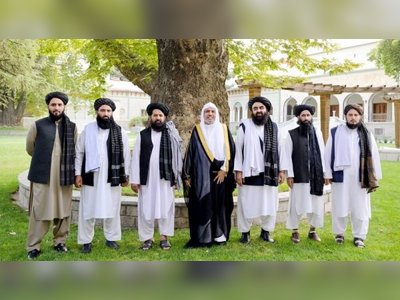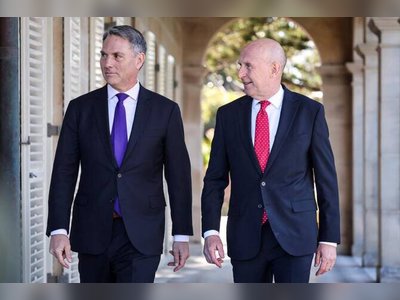
US Appeals Court Finds Trump’s Effort to End Birthright Citizenship Unconstitutional, Upholds Block
A federal appeals court ruled that President Donald Trump's order seeking to end birthright citizenship is unconstitutional.
WASHINGTON: A federal appeals court has ruled that President Donald Trump's order seeking to end birthright citizenship is unconstitutional.
This decision affirms a lower-court ruling that blocked the enforcement of this policy nationwide.
The 9th US Circuit Court of Appeals' three-judge panel found that the proposed interpretation by the Executive Order, which aimed to deny citizenship to many individuals born in the United States, was unconstitutional.
The majority opinion emphasized the correctness of the district court's decision and criticized what was described as the administration's attempt to bypass the Constitution for political gain.
The ruling maintains a block on the Trump administration's enforcement efforts regarding birthright citizenship, particularly concerning children born to individuals who are in the country either unlawfully or temporarily.
The Supreme Court has previously restricted the power of lower court judges to issue orders that affect the whole country; however, the 9th Circuit found this case to fall under one of the exceptions left open by the justices.
The states involved argued that a nationwide order was necessary to prevent issues stemming from inconsistent application of birthright citizenship across different regions.
Judge Michael Hawkins and Ronald Gould, both appointed by President Bill Clinton, supported the issuance of a universal injunction for complete relief, while Judge Patrick Bumatay, appointed by Trump, dissented, arguing that the states lacked legal standing to sue.
The Citizenship Clause of the 14th Amendment asserts that all individuals born or naturalized in the United States and subject to US jurisdiction are citizens.
The Justice Department argued that the phrase 'subject to United States jurisdiction' means citizenship is not automatically granted based on birth location alone, while the involved states contended this interpretation ignores the plain language of the Citizenship Clause as well as previous landmark cases supporting birthright citizenship.
Trump's order attempted to limit citizenship to children born in the US if their mothers did not have legal immigration status or were only temporarily in the country and if the fathers were neither US citizens nor lawful permanent residents.
Multiple lawsuits have been filed across the nation challenging this order.
This decision affirms a lower-court ruling that blocked the enforcement of this policy nationwide.
The 9th US Circuit Court of Appeals' three-judge panel found that the proposed interpretation by the Executive Order, which aimed to deny citizenship to many individuals born in the United States, was unconstitutional.
The majority opinion emphasized the correctness of the district court's decision and criticized what was described as the administration's attempt to bypass the Constitution for political gain.
The ruling maintains a block on the Trump administration's enforcement efforts regarding birthright citizenship, particularly concerning children born to individuals who are in the country either unlawfully or temporarily.
The Supreme Court has previously restricted the power of lower court judges to issue orders that affect the whole country; however, the 9th Circuit found this case to fall under one of the exceptions left open by the justices.
The states involved argued that a nationwide order was necessary to prevent issues stemming from inconsistent application of birthright citizenship across different regions.
Judge Michael Hawkins and Ronald Gould, both appointed by President Bill Clinton, supported the issuance of a universal injunction for complete relief, while Judge Patrick Bumatay, appointed by Trump, dissented, arguing that the states lacked legal standing to sue.
The Citizenship Clause of the 14th Amendment asserts that all individuals born or naturalized in the United States and subject to US jurisdiction are citizens.
The Justice Department argued that the phrase 'subject to United States jurisdiction' means citizenship is not automatically granted based on birth location alone, while the involved states contended this interpretation ignores the plain language of the Citizenship Clause as well as previous landmark cases supporting birthright citizenship.
Trump's order attempted to limit citizenship to children born in the US if their mothers did not have legal immigration status or were only temporarily in the country and if the fathers were neither US citizens nor lawful permanent residents.
Multiple lawsuits have been filed across the nation challenging this order.











